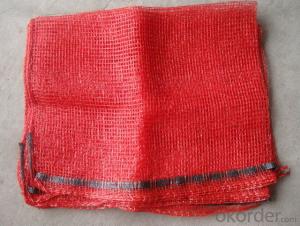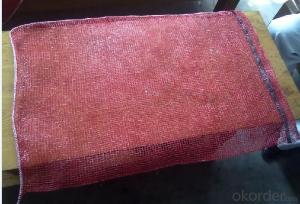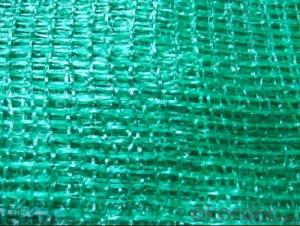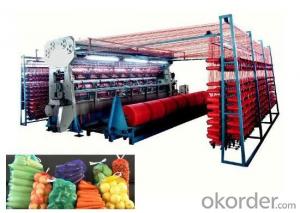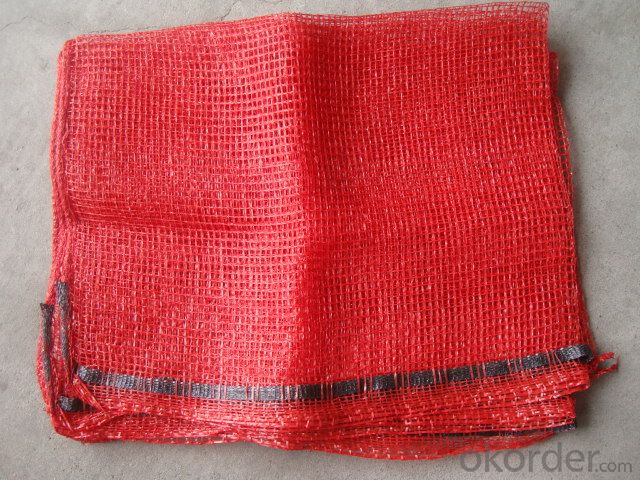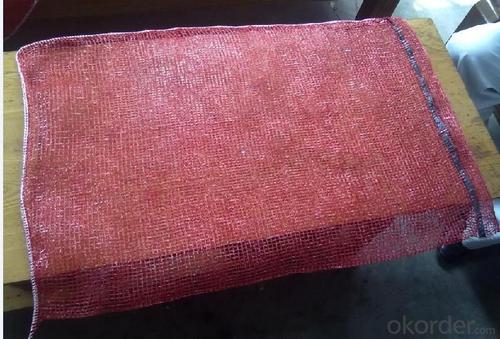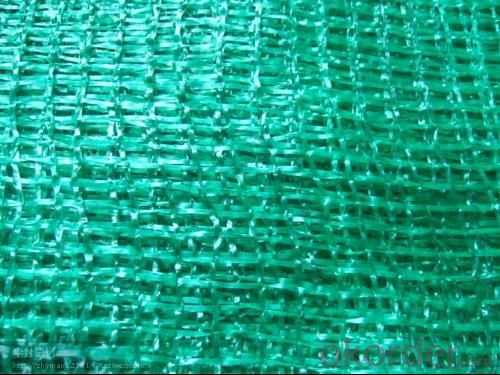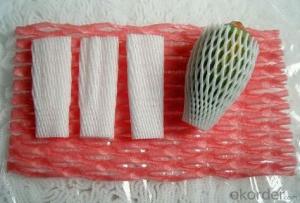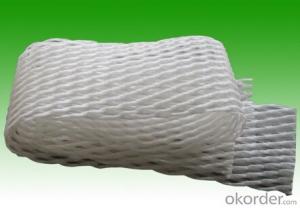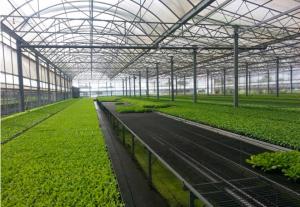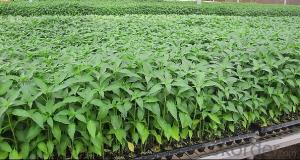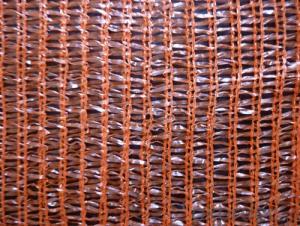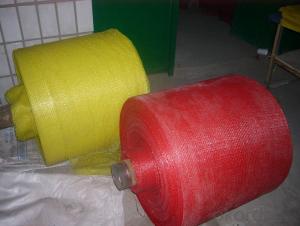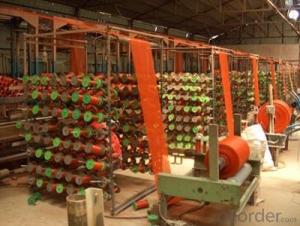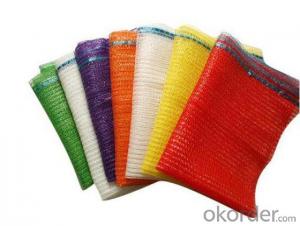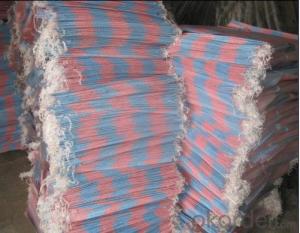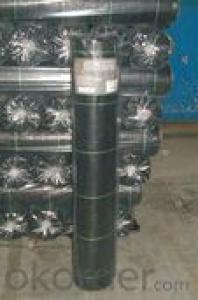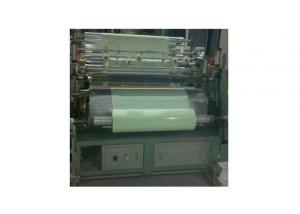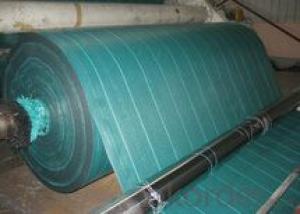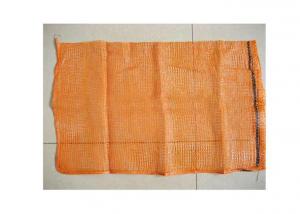Agricultural Mesh Bag Tape Filament HDPE
- Loading Port:
- Shanghai
- Payment Terms:
- TT OR LC
- Min Order Qty:
- 50000 m²
- Supply Capability:
- 500000 m²/month
OKorder Service Pledge
OKorder Financial Service
You Might Also Like
Product Name of Agricultural Mesh Bag Tape Filament HDPE:
PE Mesh Bag VIOLET
Loading Port: Shanghai port, China
Min.order quantity: 1*20GP
Supply Capability: 20*40HC per month
Payment Terms: TT or LC
Introduction of Agricultural Mesh Bag Tape Filament HDPE :
This products is made by HDPE (High-Density Polyethylene) or PP (Polypropylene), it is used for packing olive, onions, potatoes, and so on.
Specification of Agricultural Mesh Bag Tape Filament HDPE:
Material base fabric | Fabric Weight | Bag size |
HDPE (High-Density Polyethylene) or PP (Polypropylene) | 20g/m2—200g/m2 AS customer’s requirements. | 30x50cm, 40x60cm, 42x70cm, 50x80cm, 55x78cm, 55x85cm, 57x86cm, 60x90cm, etc. |
Width and length are as customers’ request.
Color: red, green, yellow, white, pink, orange, purple, as per your requirements
Top: Hemmed or locked, with drawstring or without, handle is available
Bottom: Single fold or double fold. Single stitch or double stitch
Printing: on one side or both sides, in one color or multi-colors
Application of Agricultural Mesh Bag Tape Filament HDPE:
It can be used packing onions, potatoes, apples, orange and other vegetables or fruits. It can hold heavy enough produces
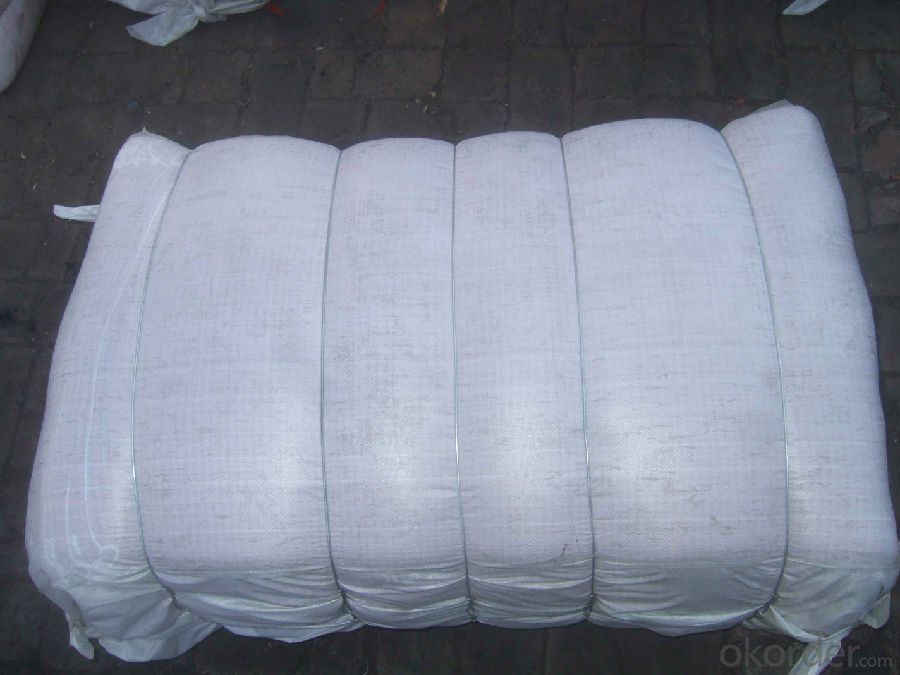
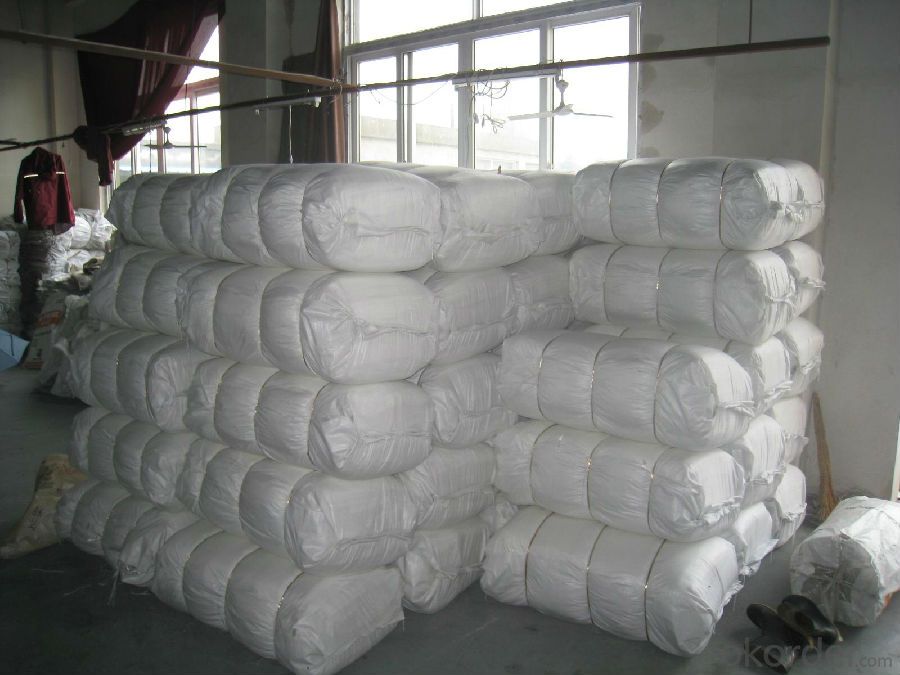
FAQ
Q: How to guarantee the quality of the products?
A:We have established the international advanced quality management system,every link from raw material to final product we have strict quality test;We resolutely put an end to unqualified products flowing into the market. At the same time, we will provide necessary follow-up service assurance.
Q: How long can we receive the product after purchase?
A:In the purchase of product within three working days, We will arrange the factory delivery as soon as possible. The pecific time of receiving is related to the state and position of customers.Commonly 30 to 35 working days can be served.
Q: HOW TO GET A SAMPLE?
A: FREE samples for Agricultural Mesh Bag Tape Filament HDPE are available for your checking and testing. And to get free samples, you need to send us you detailed receiving address (including post code) and your DHL/FedEx/UPS account for collecting samples, courier cost will be paid in your side.
- Q: Can nursery trays be used for starting groundcover seedlings?
- Yes, nursery trays can be used for starting groundcover seedlings.
- Q: Are nursery trays suitable for growing mosses?
- Yes, nursery trays are suitable for growing mosses as they provide a controlled environment for moss growth and allow for easy monitoring and maintenance of moisture levels. Additionally, the small compartments in nursery trays are ideal for cultivating and propagating different species of mosses.
- Q: How do you choose ground cover plants that are deer-resistant?
- When choosing ground cover plants that are deer-resistant, it is important to consider a few factors. Firstly, research and look for plants that have a reputation for being unpalatable to deer. This can include plants with strong scents, prickly or fuzzy leaves, or plants that are toxic to them. Additionally, opt for plants that have a low growing habit, dense foliage, or are fast-growing, as these characteristics can deter deer from accessing and damaging them. Consulting with local nurseries or gardening experts can also provide valuable insights into suitable deer-resistant ground cover plants for your specific region.
- Q: Lets say one is in his early 30's a plastic surgeon with their own practice. Do plastic surgeons with their own practice really make money or is the plastic surgeons that i see on mtv in hollywood showing how they drive their porsche's just for show? Like it's a rented porsche for the show. Do plastic surgeons really have the million dollar homes and the expensive cars or do they live just like a doctor who makes $100,000 a year in a small home and a honda accord?
- I doubt a doctor that young would get his own practice, much less be making that kind of money when he's only 30 or so. I think you have to intern and be a resident for a while.
- Q: I want to fill molds with plastic so I can make plastic objects. What home craft plastic material I can use to do this?
- (resins and similar materials) Some molds will need releases though depending on the materials you use for the molds and for the casts inside them. HTH, Diane B.
- Q: What are the best ground cover plants for sun?
- Some of the best ground cover plants for sun include creeping thyme, sedum, creeping phlox, and ice plant. These plants are low-growing, tolerate full sun conditions, and provide excellent coverage for the ground.
- Q: What are the different types of agricultural plastic greenhouse systems?
- There are several different types of agricultural plastic greenhouse systems, including traditional greenhouses, hoop houses, and high tunnels. Traditional greenhouses are permanent structures made of metal or wood frames with a plastic covering, providing a controlled environment for plants. Hoop houses are similar to greenhouses but have a curved frame made of metal or PVC pipes, covered with a plastic film. High tunnels are temporary structures with a similar curved frame, but usually covered with a heavier plastic or woven fabric. These systems vary in size, design, and level of control they offer for temperature, humidity, and ventilation.
- Q: How do agricultural plastic products help with hydroponic deep water culture?
- Agricultural plastic products play a crucial role in hydroponic deep water culture by providing a range of benefits. Firstly, plastic materials such as PVC pipes and tubing are used to build the necessary infrastructure for the system, including the hydroponic channels and reservoirs. These plastic components are durable, lightweight, and resistant to water, making them ideal for creating a reliable and long-lasting hydroponic setup. Additionally, agricultural plastic products are used to create specialized containers or pots that hold the plants' roots in the nutrient-rich water solution. These containers are designed to optimize the oxygen and nutrient supply to the plants, promoting healthy growth and maximizing crop productivity. The plastic containers are typically lightweight and easy to clean, allowing for efficient management of the hydroponic system. Furthermore, plastic films or sheets are often used as covers for the hydroponic channels or reservoirs to prevent evaporation and maintain optimal temperature and humidity levels. These plastic covers help to conserve water, reduce the risk of contamination, and create a controlled environment that enhances plant growth. Overall, agricultural plastic products are essential in hydroponic deep water culture as they provide the necessary infrastructure, containers, and covers that contribute to the efficiency, productivity, and sustainability of the system.
- Q: Are agricultural plastic products resistant to extreme weather conditions?
- Yes, agricultural plastic products are designed to be resistant to extreme weather conditions. They are often made from durable materials that can withstand intense heat, cold, wind, and rain. This allows them to be used in various climates without significant damage or deterioration.
- Q: What are the different types of agricultural plastic liners?
- There are several types of agricultural plastic liners used in farming practices, including high-density polyethylene (HDPE) liners, low-density polyethylene (LDPE) liners, linear low-density polyethylene (LLDPE) liners, and polyvinyl chloride (PVC) liners. These liners are commonly used for applications such as lining irrigation canals, ponds, and reservoirs to prevent seepage and conserve water resources.
Send your message to us
Agricultural Mesh Bag Tape Filament HDPE
- Loading Port:
- Shanghai
- Payment Terms:
- TT OR LC
- Min Order Qty:
- 50000 m²
- Supply Capability:
- 500000 m²/month
OKorder Service Pledge
OKorder Financial Service
Similar products
Hot products
Hot Searches
Related keywords
